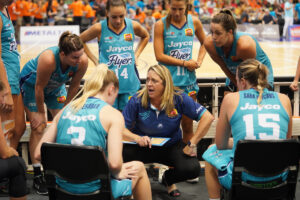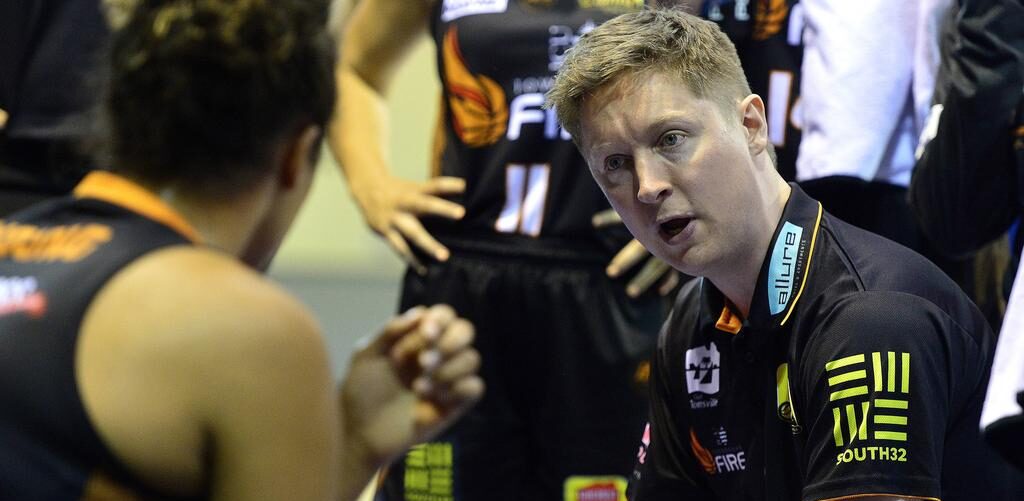One of the most important and at times challenging roles a coach has to manage is that of expectations within the team and staff. As with any leader, the ability of the coach to communicate, manage and wrap accountability around expectations is a key element to success.
In the basketball setting, expectations come from a wide range of areas. Coaching is about the players and appropriately managing and communicating the expectations of the players is an integral part of coaching leadership.
What are some expectations players may have the coach needs to acknowledge, discuss and manage?
- Playing time
- Starting
- Role
- Leadership
- Communication
- Respect
- Learning/improvement
- External pressures/influence
The above are just a handful of expectations that players may have and the management of these things should not be seen as a negative or onerous task for the coach.
As with most things, it should start with communication and in particular, questions. To understand these expectations and help support and manage them, some key questions a coach may ask –
- What do you see your role in the team as?
- Do you see yourself as a starter?
- How do you like to led/coached?
- Where do you see yourself improving this season?
- What will you consider a successful season individually?
These and other simple questions allow the coach to gain a better of understanding of individual players and the dialogue will assist in establishing rapport and gain buy-in.
The use of questioning also provides an opportunity to provide clarity on what you are thinking as a coach. Managing expectations isn’t about the acquiescing to the wants of the players. It is about having worthwhile dialogue and gaining understanding from player and coach on what is best for the team and the individual.

How do you manage “unrealistic expectations”?
In these discussions with players, coaches will often find the expectation of the player is a long way from the thoughts and expectation of the coach. Rather than see this as “unrealistic” expectations, rather a teachable moment and an opportunity for clarity.
For example, if a player who may be 9 or 10 sees themselves as a starting and playing a key role in the offence, this needs to be discussed and clarity provided. Use of questioning can make this a teachable moment –
- Do you feel you have done the work in the off-season to move into the starting line-up?
- What do you feel you will bring to the team in that role?
- What do you feel is your point of difference as a starter?
The answers to these and other questions will provide an insight for the coach, but also provide opportunity for honest feedback. Feedback is absolutely key in managing expectations at all levels.
Managing staff expectations –
Coaching and support staffs continue to expand, the head coach has more and more responsibilities in the management and leadership of their staff. Linked to this is managing the expectations of very competent people who have plenty of skills and traits to the bring to the table.
Start with the assistant coaches. Coaches by nature are leaders and communicators and want to impact learning, improvement and performance (winning). Most have excellent knowledge and feel they have plenty to contribute.

Managing the expectations of the assistant coaches may include discussing areas such as –
- Role at training
- Role at games
- Leadership role
- Status/title
- Communication style with athletes
The role of sports science, sports medicine, athlete welfare and support staff is ever-expanding, as teams and organisations understand the importance of supporting players on and off the floor.
These people are often highly qualified and experienced people with strong expertise in their respective fields. With that often comes expectations around impact, voice in meetings and impact on decision making.
For the most part, everyone will be pulling in the same direction and wanting the same outcome; but finding time to give people time and ensure they are feeling valued can be challenging.
Establishing a system of communication and “check-ins” is valuable in managing growing staffs and another area for the head coach to factor in.
The role of the Head Coach is increasingly more diverse and multi-faceted and continues to make coaching such a challenging and dynamic environment. Hopefully some of these points and concepts spark some thought and conversation.




Leave a Reply